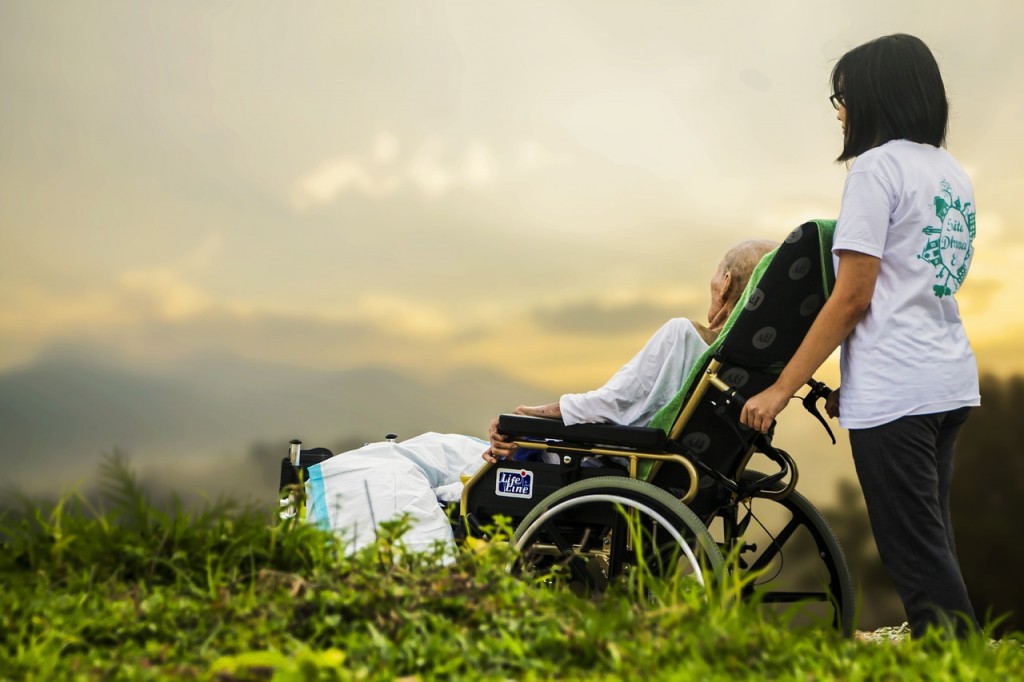26/07/2023
The URV is taking part in a project to evaluate the impact of climate change on health
A consortium led by the MútuaTerrassa Teaching and Research Foundation aims to promote two studies to extract scientific indicators that anticipate and improve the health of people suffering from chronic diseases

A consortium led by the MútuaTerrassa Teaching and Research Foundation aims to promote two studies to extract scientific indicators that anticipate and improve the health of people suffering from chronic diseases
The Universitat Rovira i Virgili will use its expertise in metabolomics in two projects that aim to assess the impact of climate change on the health of people suffering from chronic diseases. This is the aim of a consortium led by the MútuaTerrassa Teaching and Research Foundation, in which, in addition to the URV, the Catalan Meteorological Service and the UPC are also participating. The projects were announced on Wednesday. The first of its kind in Spain and one of the pioneers internationally, this initiative aims to extract scientific indicators that will make it possible to anticipate and improve the health of these people by drawing up recommendations and strategies at a global level to adapt health systems to the challenges arising from climate change.
As part of this project, the Meteorological Service of Catalonia will provide MútuaTerrassa with all the meteorological data it needs for the study, thanks to the dense network of almost 200 weather stations that it manages throughout the country, and will put its understanding of series processing and the validation and homogenisation of data at the service of the project. With this data and the data in the digitised medical records held by MútuaTerrassa, the aim is to initiate two projects in the field of biomedical research and innovation in which researchers Maria Vinaixa and Òscar Yanes, from the Mil@b research group and the URV, will take active part.
The first of these studies will have a retrospective focus, and will analyse health and climate data from the last 15 years in the area of influence of MútuaTerrassa, using big data and artificial intelligence. This exercise will make it possible to identify the people and diseases most susceptible to climate change, as well as the meteorological circumstances that have the greatest impact on health. It will also calculate the algorithms that can find the correlation between chronic diseases and the climate scenario.
Once the data from this first study has been obtained, the URV research group, which will use its experience in the field of metabolomics, intends to start a second study. In this new study, large groups of patients will be monitored prospectively and clinical, environmental and climatic information will all be used. Prior learning and new information will generate a technological tool that will allow the health system to adapt to climate change by offering anticipatory recommendations for patients (they will be able to receive personalised care adapted to the time of year, weather conditions and their own pathology); health professionals (they will have real-time information on the most vulnerable patients depending on the weather conditions and their illness) and health managers (they will have objective information in real time that will allow resources to be sized and managed appropriately according to weather conditions).
This combination of knowledge and technologies, which will provide an early and precise response, will be supplemented by metabolomic and epigenomic studies of biomarkers. The idea is to develop diagnostic and low-cost technologies that can identify and monitor those people who are most susceptible to different climatic and environmental circumstances, and adopt strategies to protect them.
“Once we know the data from the first study, which will show us which chronic diseases are most affected by climatic episodes, we will collect samples and look at which metabolic and epigenetic markers are related to the response to these climatic conditions, such as episodes of heat,” explains Maria Vinaixa, a researcher in the URV’s Department of Electronic, Electrical and Automatic Engineering.
First strategic partnership of excellence in terms of health and climate conditions
The Scientific and Technological Consortium of this project is a unique multidisciplinary alliance between various institutions of excellence in health and research. It combines the expertise of all of its participants: the MútuaTerrassa’s track record in terms of comprehensive and public healthcare and the experience of the genomics laboratory of the MútuaTerrassa Teaching and Research Foundation in the development of personalised therapies; the Universitat Rovira i Virgili (URV), an international reference in the application of metabolomics; the Technical University of Catalonia (UPC) and its UNESCO Chair in Sustainability; the Centre for Research in Biomedical Engineering (CREB) and its understanding of data mining, artificial intelligence and deep learning methods; and the Meteorological Service of Catalonia, a leading centre in the field of meteorology and climate change.
This initiative goes beyond the national level and has an international impact as it is one of the first to address the relationship between climate change and the most prevalent chronic diseases.
